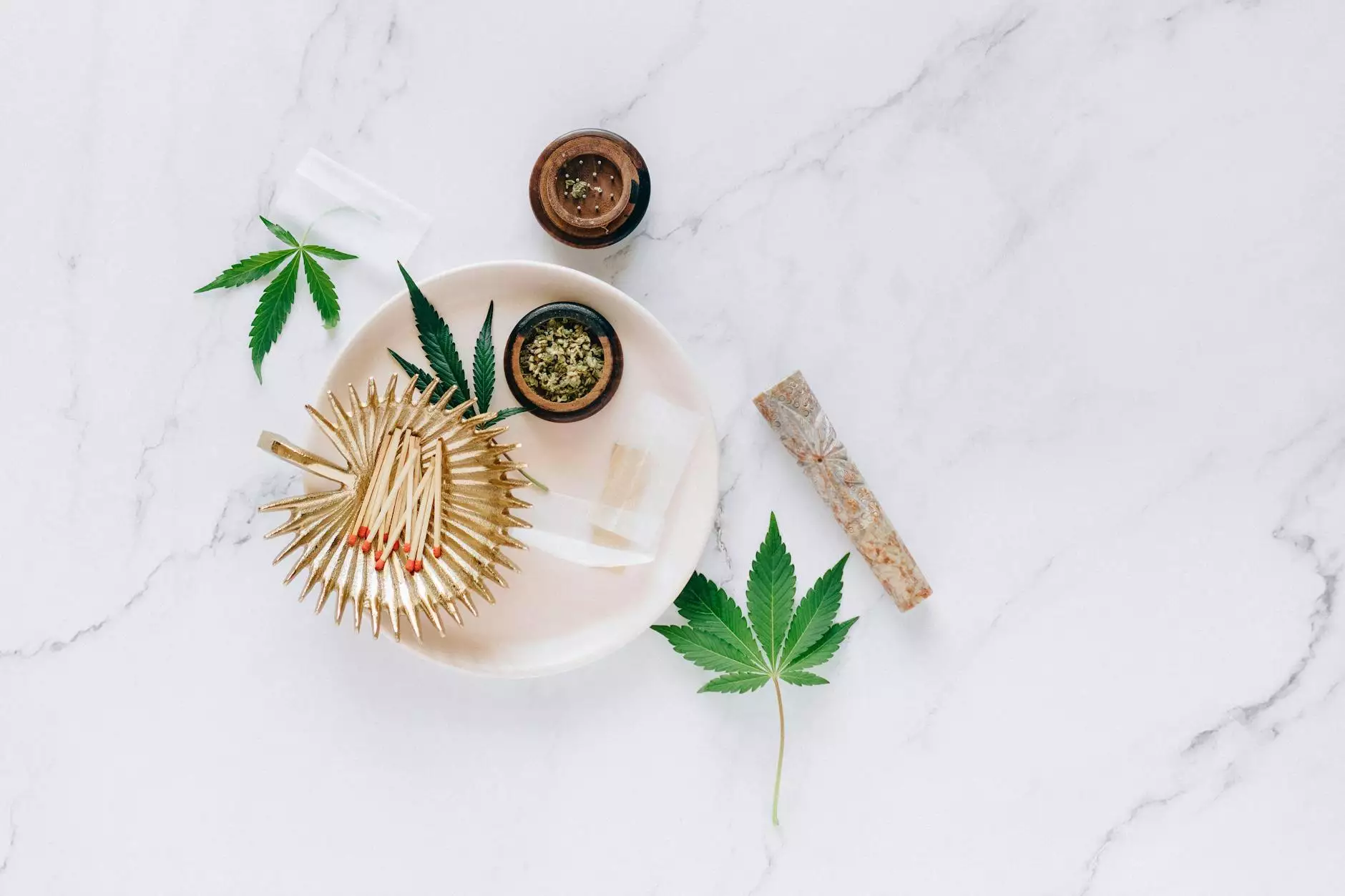The Benefits and Uses of THCA Flower Hemp

The cannabis industry has blossomed in recent years, leading to a burgeoning interest in various cannabis products. Among these, THCA flower hemp has surfaced as a noteworthy contender, attracting attention from both recreational users and medical patients alike. In this article, we will delve into what THCA is, the distinctions between THCA and THC, its potential health benefits, and how it is utilized in our evolving cannabis culture.
What is THCA?
THCA, or tetrahydrocannabinolic acid, is a natural chemical compound found in cannabis plants. It is the precursor to THC (tetrahydrocannabinol), the well-known psychoactive component of marijuana. Unlike THC, THCA is non-psychoactive, which means it does not produce the "high" associated with cannabis use. When heated or decarboxylated, THCA transforms into THC, which contributes to the psychoactive effects.
Understanding the Differences: THCA vs. THC
It is crucial to differentiate between THCA and THC, especially for those seeking specific effects from cannabis. Below are key differences:
- Psychoactivity: THCA is non-psychoactive, while THC is psychoactive.
- Medical Benefits: Both compounds offer potential health benefits, but THCA is more associated with anti-inflammatory and neuroprotective effects.
- Usage: THCA is typically consumed in raw cannabis forms, such as flowers and leaves, while THC is most commonly found in edibles, oils, and concentrates.
The Therapeutic Potential of THCA Flower Hemp
The potential health benefits of THCA flower hemp are garnering attention within both the medical community and the broader public. Here are some prominent therapeutic properties of THCA:
1. Anti-Inflammatory Properties
Research suggests that THCA may exhibit significant anti-inflammatory effects. This can be beneficial for individuals suffering from chronic pain, arthritis, and other inflammatory conditions. Unlike traditional pharmaceuticals, THCA offers a more natural alternative with less risk of side effects.
2. Neuroprotective Effects
THCA has been studied for its neuroprotective qualities, which may help in conditions like Alzheimer’s and Parkinson’s disease. By potentially reducing neurodegeneration, THCA could provide a therapeutic avenue for those affected by these debilitating diseases.
3. Antiemetic Properties
Another area where THCA shines is in its antiemetic properties, making it a potential remedy for nausea and vomiting related to chemotherapy and other treatments. This characteristic can significantly improve the quality of life for patients undergoing such intensive therapies.
4. Appetite Stimulation
THCA may also play a role in stimulating appetite, which can be particularly beneficial for patients who face challenges in maintaining their nutritional intake due to illness.
How to Use THCA Flower Hemp
Consumers interested in incorporating THCA flower hemp into their wellness routines can choose from several methods of consumption:
1. Raw Consumption
One of the simplest ways to utilize THCA flower hemp is to consume it raw. This can be achieved by eating the unprocessed buds or using them in smoothies and salads. This method preserves the THCA content and allows users to benefit from its therapeutic properties without psychoactive effects.
2. Juicing
Juicing cannabis is another effective way to harness the benefits of THCA. Fresh cannabis leaves and flowers can be juiced, resulting in a nutrient-rich beverage that retains the compound’s beneficial attributes without the high.
3. Tinctures and Concentrates
For those seeking a more potent option, tinctures made from THCA-rich cannabis can be consumed in drops under the tongue. Concentrates are also available, providing higher doses of THCA and ensuring users receive the desired therapeutic effects.
The Role of THCA Flower Hemp in the Cannabis Collective
As the cannabis movement continues to grow, communities and collectives dedicated to the responsible use of cannabis are emerging. Venera Factory is part of this wave, focusing on educating individuals about cannabis, including the important bridge of THCA and its non-psychoactive benefits.
- Education: Cannabis collectives often provide workshops and seminars to help people understand the differing compounds in cannabis, especially the value of THCA.
- Community Support: They create a support network for both new and experienced users of cannabis, promoting safe experiences and shared knowledge about products like THCA flower hemp.
- Access to Products: Many cannabis collectives offer direct access to THCA-rich strains and products, facilitating consumer engagement with non-psychoactive options.
Medical Cannabis Referrals and THCA
Given the growing body of evidence supporting the medical benefits of THCA, medical cannabis referrals have become increasingly relevant. Healthcare providers are learning to recognize the healing potentials of non-psychoactive cannabis compounds, leading to tailored treatment plans for patients.
1. Consultation with Professionals
Patients interested in exploring the benefits of THCA should consider engaging with a professional who understands the nuances of cannabis treatments. Medical cannabis referrals can provide vital access to legally compliant products and expert guidance.
2. Personalized Treatment Plans
Individuals can work with professionals to develop personalized treatment plans that incorporate THCA flower hemp alongside other modalities, optimizing outcomes and focusing on holistic wellness.
Exploring Cannabis Tours: Experience the Journey
As public interest in cannabis continues to escalate, cannabis tours have gained popularity. These tours educate participants about various aspects of cannabis, including cultivation, processing, and the medicinal properties of different strains including THCA flower hemp.
1. Educational Opportunities
Cannabis tours often provide hands-on learning experiences, offering insights into the lifecycle of cannabis cultivation and the therapeutic roles of different cannabinoids.
2. Connecting with Experts
Participants on cannabis tours have the chance to connect with industry experts, helping them gain valuable perspectives on the emerging research surrounding THCA and other compounds.
3. Community Engagement
These tours foster community involvement, as they often encourage discussion and networking among attendees who share a common interest in understanding cannabis deeply.
Conclusion: The Bright Future of THCA Flower Hemp
As we're witnessing a transformative moment in the realm of cannabis, the spotlight on THCA flower hemp highlights a critical evolution in how we view and utilize this plant. The non-psychoactive nature of THCA offers a plethora of therapeutic applications, making it a valuable option for medical users and health-conscious individuals alike. With ongoing education and community engagement through cannabis collectives, referrals, and tours, the potential for THCA to contribute positively to the wellness sphere is vast.
By championing the use of THCA flower hemp, we stand at the threshold of a promising frontier in cannabis medicine, one that prioritizes health and healing without adverse psychoactive effects. As the understanding of cannabinoids progresses, there's no doubt that THCA will play an integral role in shaping the future of cannabis culture.









